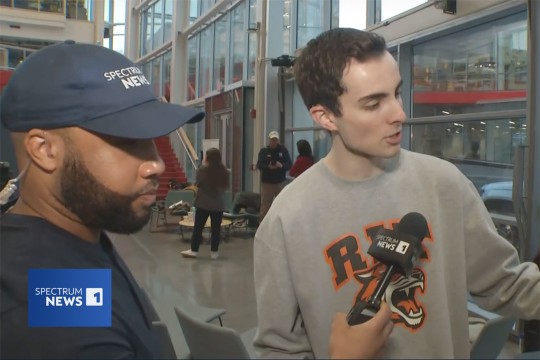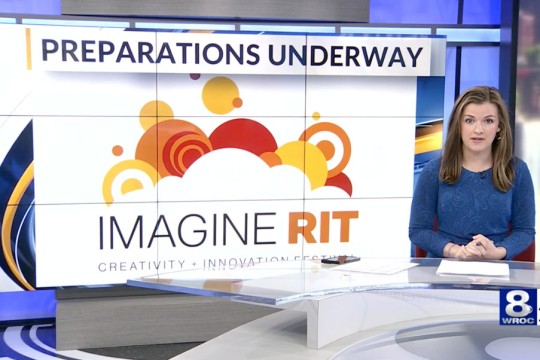Can You See Me Now?
Sprint Donates Webcams to NTID Students
Deaf and hard-of-hearing students are experiencing a new form of communication through the use of small, digital video cameras that connect to computers and enable users to stream live video over the Internet—thanks to Sprint, who donated 200 webcams to the National Technical Institute for the Deaf (NTID), a college of Rochester Institute of Technology (RIT).
"The webcams allow students for the first time to use sign language when making phone calls," said Mary Beth Barber-Mothersell, Sprint Relay account manager and NTID/RIT graduate. "The NTID/RIT campus is fully wired with high-speed Internet, so students are ready to take advantage of this incredible technology."
"The webcam brings me closer to my family even when we are 3,000 miles apart," said Gloria Farr, a third-year social work student. In addition to using the webcam with Sprint's Video Relay Service (VRS), Farr uses it to communicate directly using American Sign Language (ASL) with her parents and relatives in northern California via video conferencing software.
Internet relay service, like traditional telephone relay service, allows deaf and hard-of-hearing people to call hearing telephone users via a web browser and a relay operator who translates text into voice and vice versa. Sprint's Video Relay Service, however, delivers a much richer experience for individuals who are deaf or hard-of-hearing. VRS and webcams allow visual communication using ASL instead of text-based, typed English. This method enables a much more natural conversational flow among the parties and the relay operator in real time, eliminating the time lag common with text-based relay. Deaf and hard-of hearing VRS users now have the option to conduct telephone conversations in his/her preferred language.
Sprint also offers a new service using video relay and a television set, instead of a computer, with high-speed Internet access and D-link units.
Sprint's long partnership with NTID is based on a common goal of enhancing students' telecommunications experience via technological advances. Previously, Sprint donated videoconferencing equipment to the NTID Learning Center, enabling NTID students to interview for co-op positions in other states without leaving campus, and for administrators to conduct meetings with sister colleges overseas. The Sprint Endowed Scholarship Fund was created in 1994 to support scholarship awards for deaf and hard-of-hearing students attending NTID/RIT. Sprint was also a platinum sponsor of NTID's recent 35th anniversary/alumni reunion.
NTID is the first and largest technological college in the world for deaf and hard-of-hearing students. NTID, one of eight colleges of RIT, offers educational programs and access and support services to its 1,100 students from around the world who study, live, and socialize with 14,400 hearing students on RIT's Rochester, N.Y., campus.














